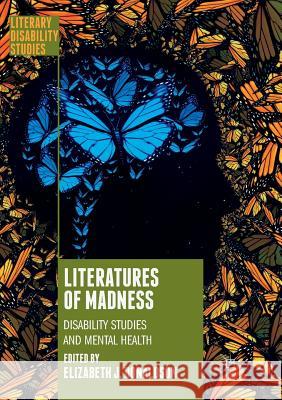Literatures of Madness: Disability Studies and Mental Health » książka
topmenu
Literatures of Madness: Disability Studies and Mental Health
ISBN-13: 9783030064853 / Angielski / Miękka / 2019 / 242 str.
Kategorie:
Kategorie BISAC:
Wydawca:
Palgrave MacMillan
Seria wydawnicza:
Język:
Angielski
ISBN-13:
9783030064853
Rok wydania:
2019
Wydanie:
Softcover Repri
Numer serii:
000793603
Ilość stron:
242
Waga:
0.31 kg
Wymiary:
21.01 x 14.81 x 1.4
Oprawa:
Miękka
Wolumenów:
01
Dodatkowe informacje:
Wydanie ilustrowane











